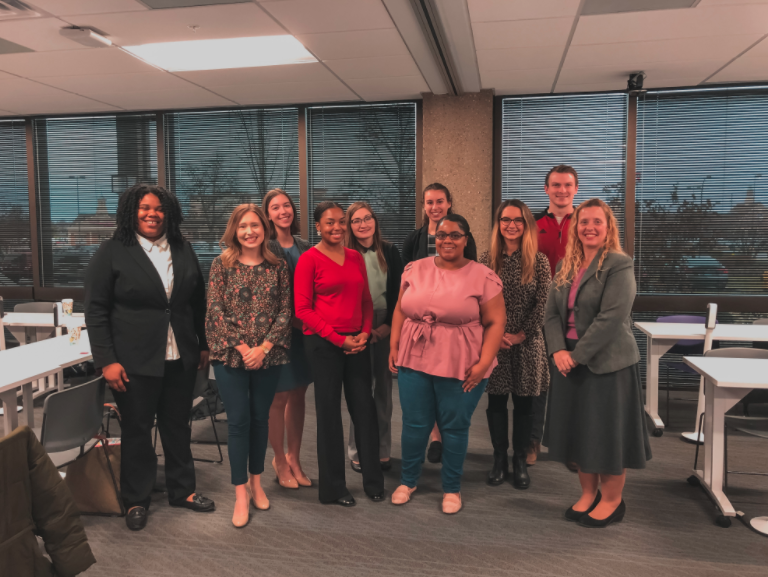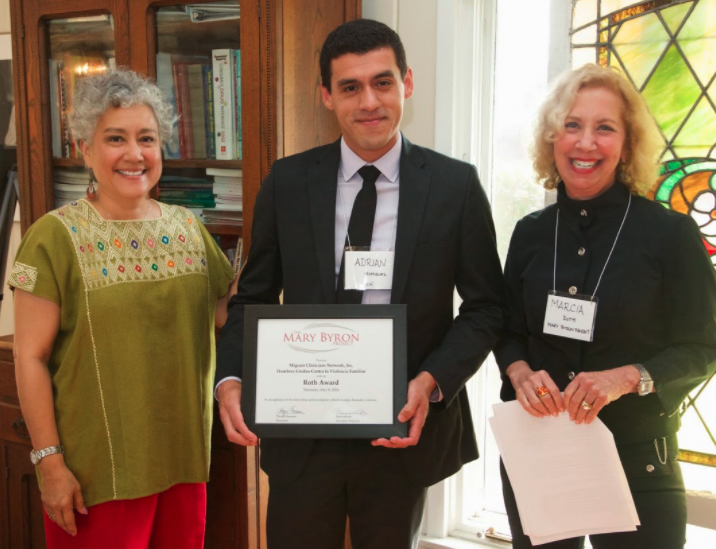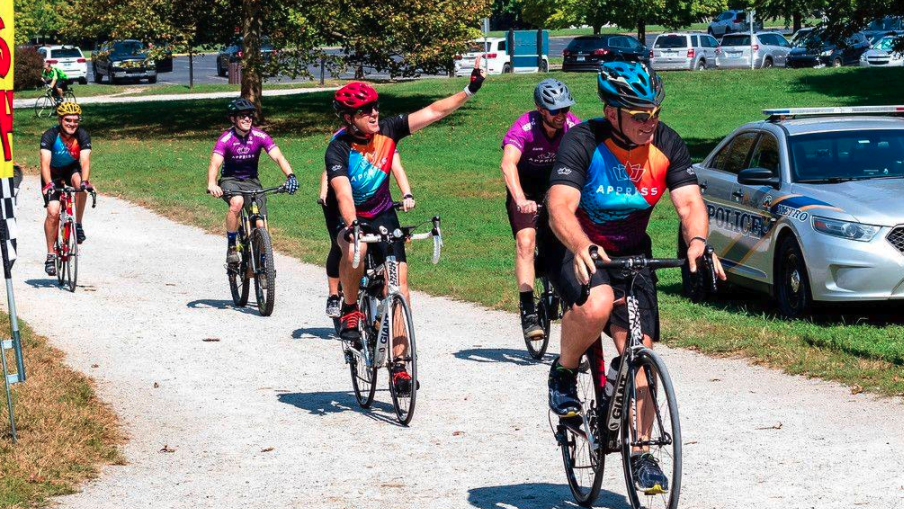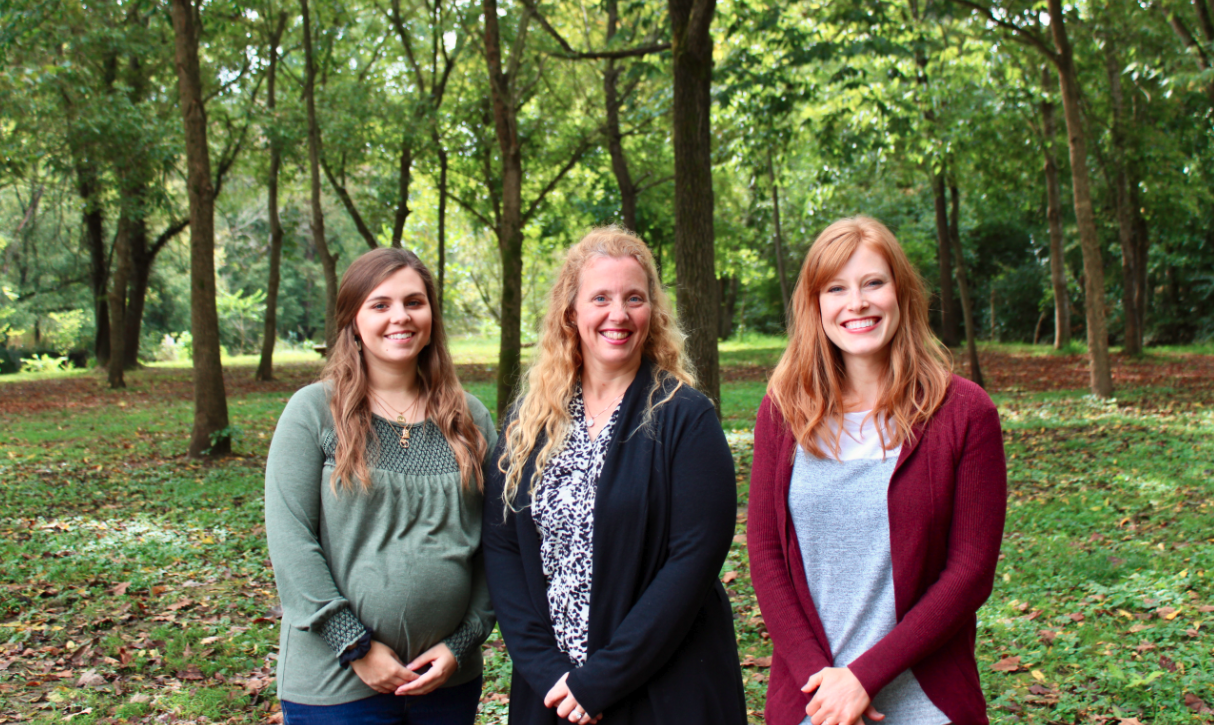Victim Advocacy Organization Turns 20
On December 6, 1993, Mary Byron celebrated her 21st birthday. She was murdered that evening by her abusive ex-boyfriend, who waited for her in a parking lot as she left work. She believed he was in jail for previously attacking her. Many thought Byron’s death was avoidable. If she had known this dangerous man had posted bail, she could have taken precautions for her safety and survived that night.

On the one-year anniversary of her murder, the first automatic notification system for crime victims, called VINE (Victim Information and Notification Everyday) was launched in Jefferson County. VINE is now used across the nation. It is a product of Appriss, a local company with global reach. For Byron’s parents, Pat and John Byron, as well as the creators of VINE and community leaders, VINE was a start but not enough. Seven years after Byron’s death, the Mary Byron Project was founded to help end intimate partner violence.
Sadly, more than 25 years after Byron’s death, domestic abuse is still at a high level in the U.S.
“It is a real problem, happening to so many – 12 million victims each year, three in 10 women and one in 10 men negatively impacted,” says Dorislee Gilbert, executive director of the Mary Byron Project.
The leaders of the organization honor Byron and her memory by working to end domestic partner violence.
“We want to do right by Mary,” Gilbert says. “This is her legacy. Many people remember Mary and what happened, and there was a response from the community to work on positive changes. What really reached people and made them take action was how Mary’s former boyfriend was released, and she didn’t know. She felt safe and tried to go on with her life.”

In the 20 years since it was created, the Mary Byron Project has given more than $1 million to fund solutions for addressing domestic partner violence nationwide.
Past recipients include DV LEAP, the Battered Women’s Justice Project, Sojourner House, Providence House Domestic Violence Services, and the New York Legal Assistance Group’s Project Eden.
Gilbert, an attorney and veteran prosecutor, began as executive director in 2019 after Marcia Roth, founding director, retired. Project leaders decided to focus on a statewide legal program to end intimate partner violence.
One way the Mary Byron Project helps is by representing survivors in court appeals related to intimate partner violence. An appeal allows a victim to ask other judges to look at a lower court’s decision to determine whether it is valid.
“Appeals can cost a lot and require specialized, technical knowledge,” Gilbert says. “Often students or legal aid represent victims in the original case, but the same resources are not available for appeals. The Mary Byron Project provides free, expert legal representation on appeal and impactful training for the legal community.“
The Mary Byron Scholars program at Assumption High School helps to raise awareness and counsel teens on how to educate classmates about dating violence. Byron was a 1991 graduate of Assumption.
“My heart has always been in these cases,” Gilbert adds. “When the people hurting you are the people who are supposed to love you, it’s a lonely and frightening place to be. Someone has to step in to say love doesn’t look like that.”

Regarding her journey to the Mary Byron Project, Gilbert says she initially spoke with Roth about participating.
“I looked at similar programs in D.C. and California,” she says. “I knew that I could be part of change for individual survivors and systemic change that would positively influence all domestic violence cases. As a prosecutor, I saw the frustration at how the system works, the difficulties in keeping victims safe, and the need for more understanding of intimate partner violence throughout the justice system. The Mary Byron Project is making positive change in these areas.”
This fall the organization is launching a virtual 20th anniversary event to celebrate accomplishments, raise awareness, and continue to bring positive change. As it has for many others, COVID-19 has brought challenges, but project leaders have continued to represent survivors in appeals and have held many trainings and events online.
While Gilbert emphasizes that the justice system should be a place where those who have been victimized by intimate partners can turn for legal protection, she insists that our individual behaviors make a difference. She says the riskiest time for victims of intimate partner violence is when they try to leave the relationship, and she offers hope.
“When we as individuals listen to victims without judging how we think they should have reacted, and when we discourage gender-based stereotypes and biases that excuse and allow abuse to flourish, we make the world a safer place to survive and escape intimate partner violence,” Gilbert says.
Gilbert says victims who are currently experiencing abuse can obtain assistance from the Center for Women and Families, the Louisville area domestic violence shelter, or the National Domestic Violence Hotline. The Center’s toll-free number is 1-844-237-2331, and its website is thecenteronline.org. The Hotline can be reached at 1-800-799-7233, and its website is thehotline.org.
For more information on the Mary Byron Project, visit marybyronproject.org, and call 502-992-3444.






